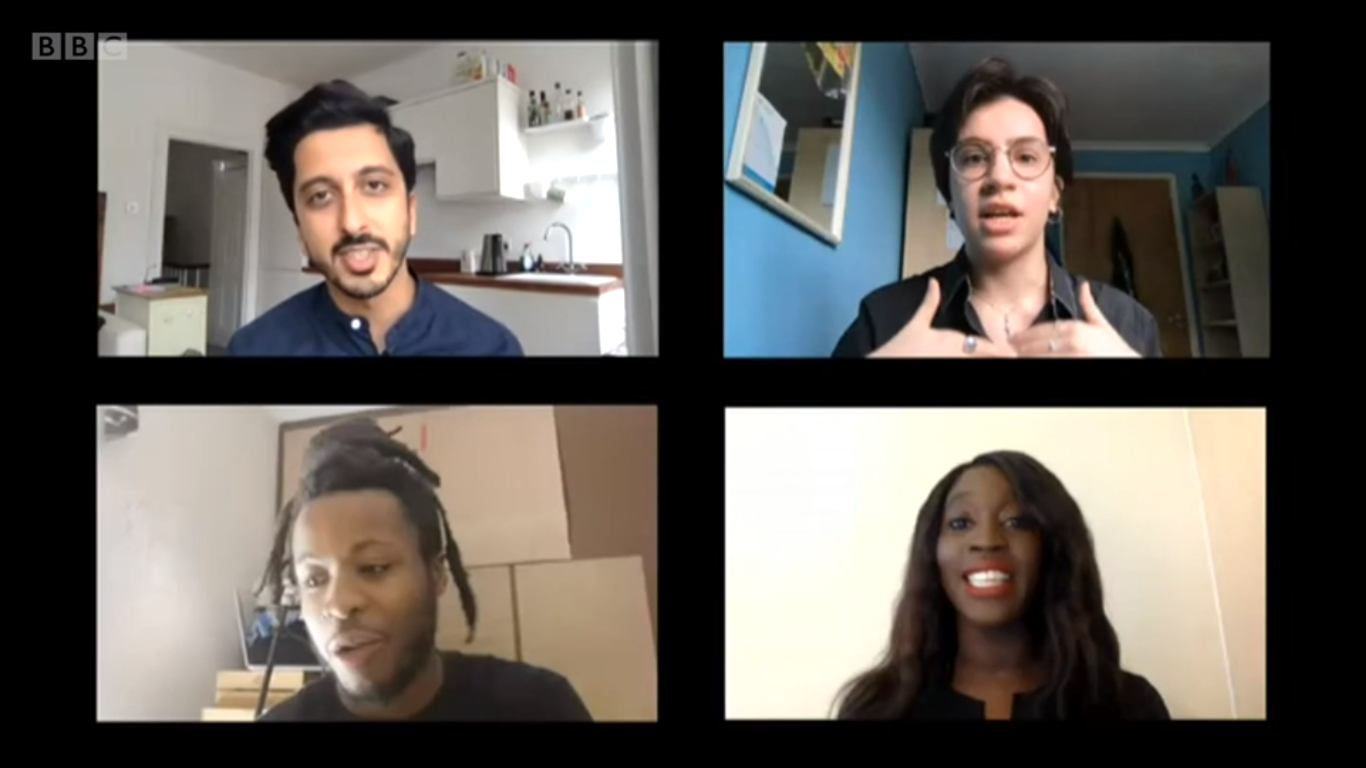Our News
Let’s Stop Using ‘BAME’

Image Credit: BBC 2020
Four people from different backgrounds discuss the term BAME – BBC
Prompted by the Black Lives Matter movement, we have been reminded of the importance of doing our research and keeping on learning and adapting. Just as we check that you’re using the best and most up-to-date climate science and data, we felt it was important to ensure that the language we use when referring to different ethnicities is the best it can be in order to understand and address individuals in relation to their own realities and lived experiences.
Climate Change already disproportionately affects minorities and indigenous communities around the globe, which is an important topic to cover in any Carbon Literacy course. In order to help address different communities correctly in the discussion, we hope you find this piece useful and it helps you as you work to build your knowledge.
We appreciate that as a majority White team, we are not well qualified to discuss this issue. As such, if you deem any of the positions we discuss here to be incorrect, or have further resources to help support us or other readers to learn and do better, we welcome your input and feedback.
BAME – refers to ‘Black, Asian and Minority Ethnic’ groups (A catch-all term implemented by some to describe all individuals who aren’t White)
Issues with the term:
- This term fails to encompass how individuals would like to be identified, it assumes and groups individuals together who have historically experienced a vast range of different prejudices.
- Some individuals may be grouped in this category without actually identifying with these identities. E.g. Individuals with mixed heritage.
- Not all issues referred to as BAME issues impact all member of the BAME community. E.g. Higher stop and search rates, police brutality and lack of access to higher education are particular issues for the Black community, with lower incidence within other ethnicities.
- BAME is a term which has been used by White people to describe all individuals who aren’t White. However, grouping individuals from different ethnicities under one umbrella term isn’t encompassing or understanding of different cultures.
- BAME doesn’t have enough nuance to distinguish and differentiate between different cultures, lifestyles, prejudices, and historical or lived experiences.
- BAME is a term which has been coined in predominantly White countries. When discussing other countries or continents, e.g. Africa, it’s even more inappropriate to use BAME as the ethnic minority here would be White.
How to avoid these issues:
- Many individuals prefer to be referred to by their specific ethnicity (if the context requires it at all), this is more appropriate in encompassing an individual’s ethnic history, lived experiences, and any issues they may face. E.g. If referring to an issue which only affects individuals within the Black community, this issue needs to be recognised in relation to this community’s experiences of racism and prejudice.
- Always use a capital letter when referring to specific ethnicities and communities.
- Opening up the conversation: ask colleagues and working partners how they would like their ethnicity to be identified.
In the blog Please, don’t call me BAME or BME!, Zamila Bunglawala explains:
“Personally, I have never referred to my ethnicity using BAME or BME, and I don’t like it when they are used to describe me. Like many ethnic minorities, I proudly refer to my specific ethnic identity – my background is Indian. That’s obviously my personal preference, but the fact that the acceptability of BAME and BME has been called into question by The BBC, The Times and The Guardian, suggests I am not alone.
“Similarly, the term ‘non-White’ was not well received by ethnic minorities during our research, as it defines ethnic minorities solely by reference to the White majority. We do not use the term ‘non-Black’ when describing the White group, so why should we say ‘non-White’ when describing ethnic minorities?”
The blog also includes a short list of dos and don’ts, which we have detailed below:

It is important to regularly evaluate language to ensure it is still fit for the purpose intended. We have included a list of our sources below in case they are helpful to you, however, they are by no means exhaustive. It is important to do your own research and for us all to continue to learn.
Further sources / reading:
‘Don’t call me BAME’: Why some people are rejecting the term by Nora Fakim and Cecilia Macaulay
Which is the right term? Black vs. BIPOC vs. African American vs. POC vs. BAME – YouTube
BAME is Lazy Language – Your Voice EP9 – YouTube